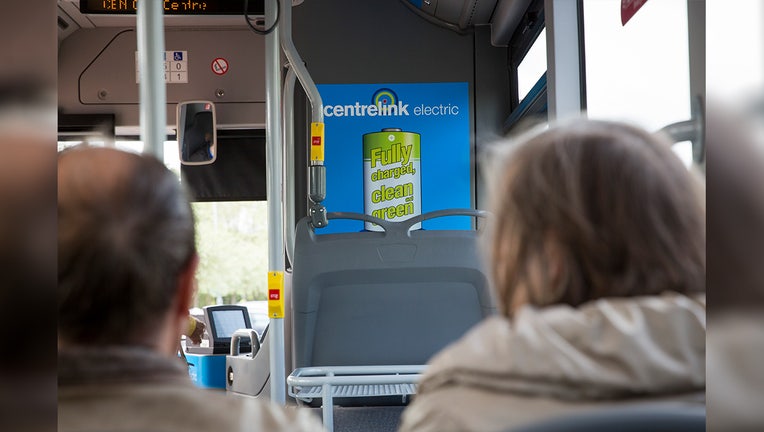Feds award $8.5 million for rural MN transportation projects to reduce emissions

Inside one of Nottinghams zero emissions Ecolink buses in Nottingham, Nottinghamshire, United Kingdom. (photo by Andrew Aitchison / In pictures via Getty Images)
ST. PAUL, Minn. (FOX 9) - Federal Transportation Administration (FTA) grants are putting millions of dollars into rural Minnesota projects meant to reduce emissions from public transportation.
Where the money is going
Minnesota Department of Transportation (MnDOT) officials say the $8.5 million in funding is coming from two federal programs, "Low and No Emissions" along with "Bus and Bus Facilities," which are part of the Infrastructure Investment and Jobs Act.
Two rural transit providers are set to upgrade their fleets and infrastructure with the emissions grant, with federal funding set to cover about $2.3 million of the overall $2.8 million cost, while state transit funds will cover the rest.
United Community Action Partnership's (UCAP) Community Transit will use the funding to replace six of its gas-powered buses with propane-fueled buses. The buses will be based in Marshall and will serve Lincoln, Lyon, Redwood, Pipestone, Murray, Cottonwood, Jackson and Rock counties in southwest Minnesota.
Another transit company, Friendly Rider Transit, will reportedly use the funding to replace three gas- and diesel-powered buses with propane-fueled buses that will be based at its Wadena Transit Facility and serve Wadena County.
The bus facilities grant will fund the construction of two transit facilities in Austin and Waseca. The total cost is estimated to be $7.8 million, with the FTA grants covering about $6.3 million and the rest being covered by state transit funds.
READ MORE: Infrastructure spending raises hopes for Minnesota projects
MnDOT officials say the facilities "will enhance operational efficiency for the entire SMART (Southern Minnesota Area Rural Transit) Transit system" to provide more safe and reliable transportation.
The new facilities in Austin and Waseca are reportedly designed to be more energy-efficient and will include solar panels. Officials say this "cost-effective form of referable energy" will help facilitate a future transition to a zero-emission transit fleet.
Both the new buses and the new transit infrastructure could be in place in the next one or two years, according to MnDOT officials.
What they're saying
U.S. Sens. Tina Smith and Amy Klobuchar credited the 2021 infrastructure law for the availability of the funding.
"Investments in public transit make it easier for families in rural Minnesota to get to school, work, and other destinations. This federal funding will go towards creating the modern, efficient public transit system families in Southwestern Minnesota need to reliably get around," said Sen. Klobuchar in a statement.
READ MORE: Gov. Tim Walz announces 2024 infrastructure plan
Sen. Smith added, "Each day, transit systems connect Minnesotans to their jobs, schools, grocery stores, and countless other opportunities – all while reducing traffic congestion and pollution. But for many people, especially those in rural areas, safe, reliable public transportation is hard to find. This funding from President Biden’s Bipartisan Infrastructure Law will deliver faster, safer, and more energy efficient transportation to communities across Southwestern Minnesota."
Background
Scientists say propane engines emit less nitrogen oxide and less carbon monoxide compared to gasoline and diesel engines.
President Joe Biden previously has voiced his commitment to reducing climate change while announcing funding for clean energy initiatives.

